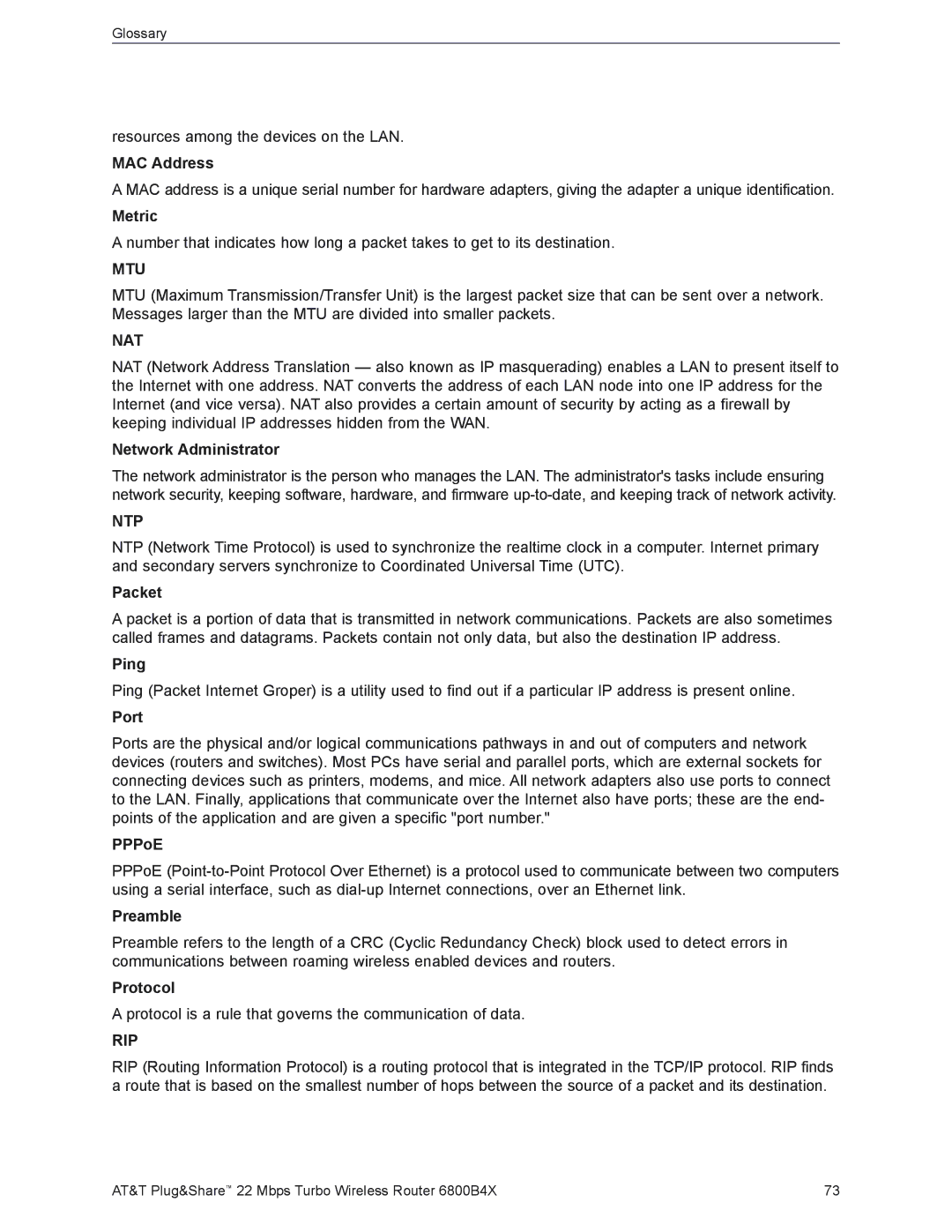Glossary
resources among the devices on the LAN.
MAC Address
A MAC address is a unique serial number for hardware adapters, giving the adapter a unique identification.
Metric
A number that indicates how long a packet takes to get to its destination.
MTU
MTU (Maximum Transmission/Transfer Unit) is the largest packet size that can be sent over a network. Messages larger than the MTU are divided into smaller packets.
NAT
NAT (Network Address Translation — also known as IP masquerading) enables a LAN to present itself to the Internet with one address. NAT converts the address of each LAN node into one IP address for the Internet (and vice versa). NAT also provides a certain amount of security by acting as a firewall by keeping individual IP addresses hidden from the WAN.
Network Administrator
The network administrator is the person who manages the LAN. The administrator's tasks include ensuring network security, keeping software, hardware, and firmware
NTP
NTP (Network Time Protocol) is used to synchronize the realtime clock in a computer. Internet primary and secondary servers synchronize to Coordinated Universal Time (UTC).
Packet
A packet is a portion of data that is transmitted in network communications. Packets are also sometimes called frames and datagrams. Packets contain not only data, but also the destination IP address.
Ping
Ping (Packet Internet Groper) is a utility used to find out if a particular IP address is present online.
Port
Ports are the physical and/or logical communications pathways in and out of computers and network devices (routers and switches). Most PCs have serial and parallel ports, which are external sockets for connecting devices such as printers, modems, and mice. All network adapters also use ports to connect to the LAN. Finally, applications that communicate over the Internet also have ports; these are the end- points of the application and are given a specific "port number."
PPPoE
PPPoE
Preamble
Preamble refers to the length of a CRC (Cyclic Redundancy Check) block used to detect errors in communications between roaming wireless enabled devices and routers.
Protocol
A protocol is a rule that governs the communication of data.
RIP
RIP (Routing Information Protocol) is a routing protocol that is integrated in the TCP/IP protocol. RIP finds a route that is based on the smallest number of hops between the source of a packet and its destination.
AT&T Plug&Share™ 22 Mbps Turbo Wireless Router 6800B4X | 73 |
